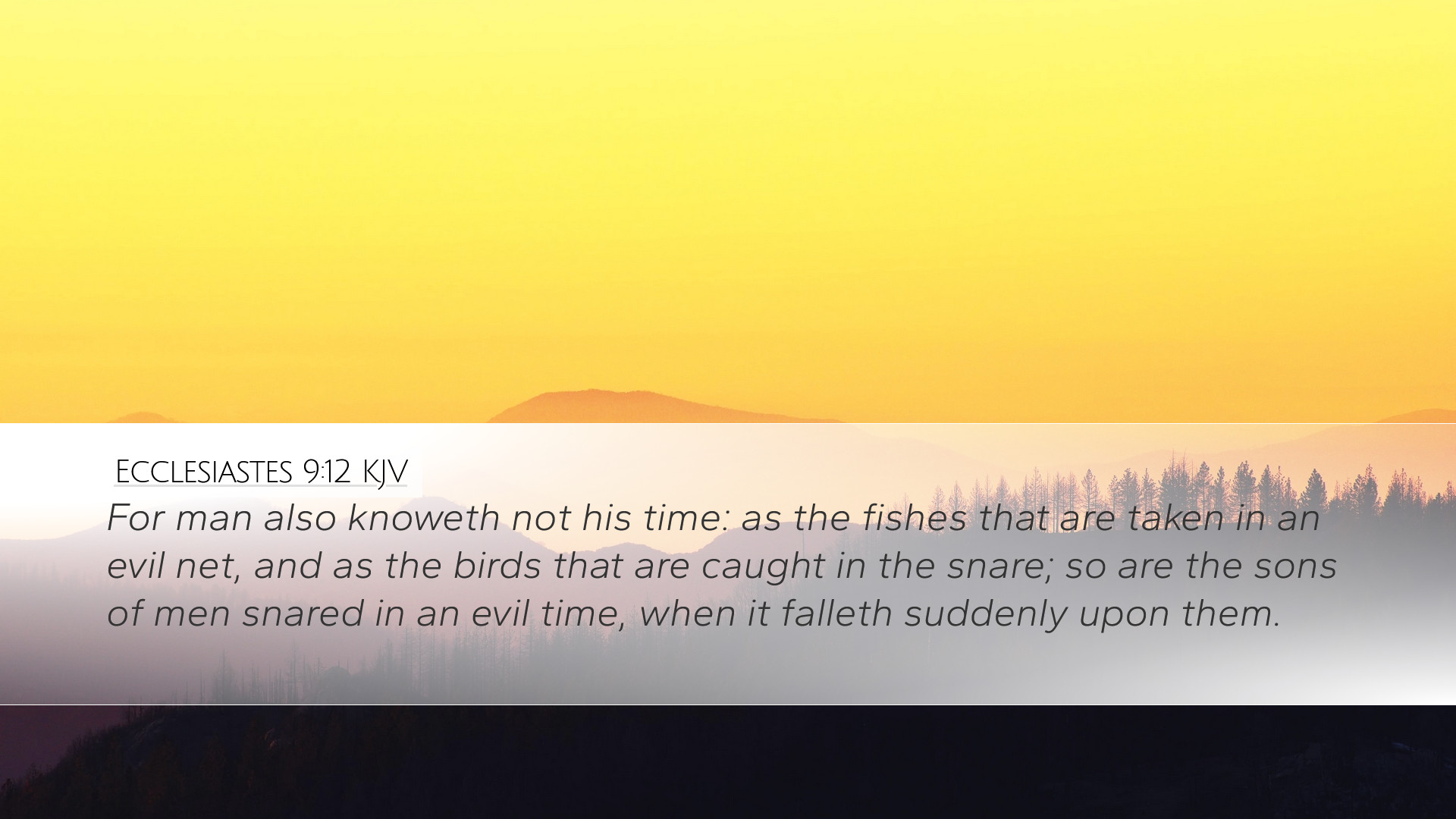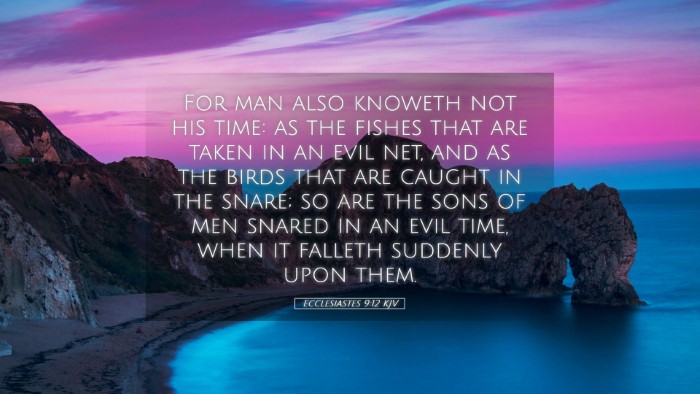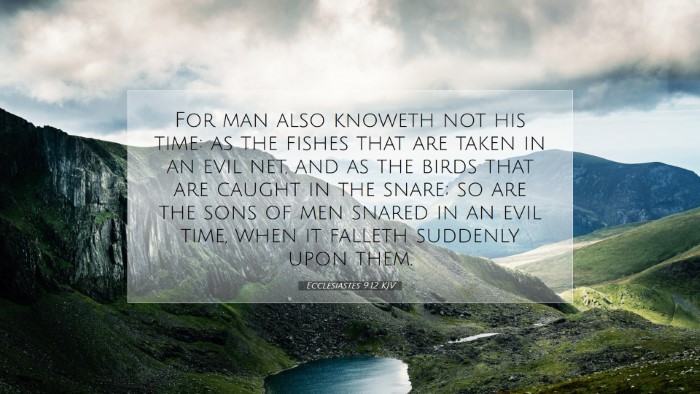Old Testament
Genesis Exodus Leviticus Numbers Deuteronomy Joshua Judges Ruth 1 Samuel 2 Samuel 1 Kings 2 Kings 1 Chronicles 2 Chronicles Ezra Nehemiah Esther Job Psalms Proverbs Ecclesiastes Song of Solomon Isaiah Jeremiah Lamentations Ezekiel Daniel Hosea Joel Amos Obadiah Jonah Micah Nahum Habakkuk Zephaniah Haggai Zechariah MalachiVerse
Ecclesiastes 9:1 Ecclesiastes 9:2 Ecclesiastes 9:3 Ecclesiastes 9:4 Ecclesiastes 9:5 Ecclesiastes 9:6 Ecclesiastes 9:7 Ecclesiastes 9:8 Ecclesiastes 9:9 Ecclesiastes 9:10 Ecclesiastes 9:11 Ecclesiastes 9:12 Ecclesiastes 9:13 Ecclesiastes 9:14 Ecclesiastes 9:15 Ecclesiastes 9:16 Ecclesiastes 9:17 Ecclesiastes 9:18

